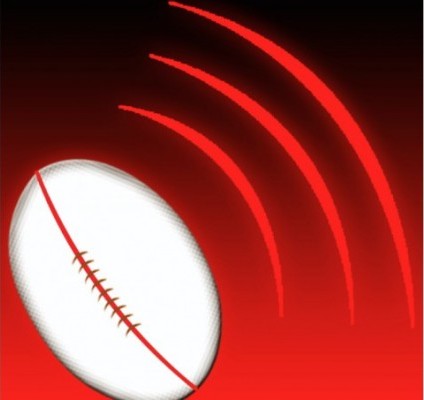New Coach McCoy: It's a Duty and a Gift
New Coach McCoy: It's a Duty and a Gift
The American Rugby Pro Training Center (ARPTC) drew a lot of praise during its first year of existence. It placed players into a full-time rugby environment, and output skilled athletes and high-functioning teams. After winning the women’s club 7s national championship, six residents were invited to the mid-September USA Women 7s camp at the Olympic Training Center (OTC). For ARPTC founder and head coach Julie McCoy, those invites were validation that she was doing something of value.
And then McCoy received a phone call.
USA Rugby CEO Nigel Melville contacted McCoy and indicated that there was going to be a coaching change for the USA Women 7s team. Melville asked whether McCoy would be interested in taking over the program.
“Funny, I said, ‘You mean for 2020,’ McCoy recounted the conversation. “I assumed he meant after Rio. But no, they were looking to make a change before then. I was surprised, probably like everyone else.
It was a unique situation in that the post was for less than a year – through the 2016 Olympic Games. McCoy would have to relinquish her position at the ARPTC, but she could bequeath the leadership to the very capable Ellie Karvoski and Laura Cabrera. There were other considerations – family, neurology practice – but could she make it work? Absolutely.
“I started thinking, ‘Who could get the job done,” McCoy said. “There aren’t many options out there who have already had the experience [of coaching a national team] and didn’t already know the landscape. And other coaches would want more guarantees in order to uproot their lives.”
Remember McCoy served as USA Women’s 7s head coach through the 2009 Women’s Rugby World Cup Sevens, which ended with a two-point loss to New Zealand in the Cup semifinals.
“I’m different because I don’t have the expectation of building a legacy through doing this,” McCoy said. “I’m not wanting fame. I’ve already been on that path and had plenty of that. It’s more my duty than something I have to prove.”
McCoy accepted the job and arrived in Chula Vista midway through the September OTC 7s camp. She spent that first week familiarizing herself with the team, and conducted 33 one-on-one conversations with the residents and guest players.
Fortunately, McCoy wasn’t beginning from scratch. She knew Jill Potter and Kelly Griffin, who were in the 7s pool when she was coaching, as well as some of the veteran players. She had done some developmental work for former coach Ric Suggitt until he no longer needed her services a couple of years ago. McCoy has been to OTC several times, including a visit during USA Men’s 7s coach Mike Friday’s high performance camp back in March.
“I knew the ropes without being in control of the ropes,” McCoy said. “And I’ve received a lot of support. The OTC has welcomed me with open arms; Mags [Alex Magleby] and [Pete] Steinberg have been great. I knew the staffing before, so I wasn’t brand new. It was like getting on a bike and riding; it was a natural thing for me.”
With three weeks of training in the bank, coach is pleased how the players are adapting to her philosophy and approach to the game. She’s also keeping her options open and welcomes a big high performance camp to town next week.
“The contracted players are well aware that those kids are there to try and knock them out of their spots,” McCoy said. “We’ve prepared them and reality-checked their expectations. They understand the process. I’m charged with finding the best pool of players who complement each other’s skill set.”
Ideally, McCoy would like to know her Olympic player pool by January. Olympic athletes must be drug tested six months before the Games, and therefore, anyone who might have a chance of making the team must be added to the drug test list.
“At some point, the players need to know who they’re competing against, and the revolving door of replacement needs to stop,” McCoy explained. “Competition is one thing; instability is another stretch. That would give us six months training together.”
McCoy indicated that the door wouldn’t be entirely closed, just in case a “diamond in the rough” appeared or injuries struck. In fact, there are a few rehabbing players – Vix Folayan, Bui Baravilala, Hannah Lopez – who are hoping to recover in time for selections.
“There are a number of players who have been injured and have proven themselves very worthy on the circuit,” McCoy said. “It’s a balancing act: How can I help those players get back to 100% so they can compete without losing an opportunity to develop someone else in the event that they can’t? I have some ideas on how I’m going to manage that and benefit all parties.”
Money is a big part of the equation. It’s tough financially to live in Southern California or relocate during rehab. McCoy wants to keep those injured players close while not going over budget.
“We want the best players with the most experience playing – that makes perfect sense to everybody,” McCoy said. “They want that, too. People like Vix and Bui, if they can’t be ready, then they want the team to be ready.”
The whole program is busy at work and focusing on the end-goal: medal at the Olympics. McCoy is so invested, she hasn’t thought past August 2016.
“I don’t know how I’m going to feel,” McCoy considered coaching after the Olympics. “I might think, ‘This was a great ride and I’m so happy that I got this opportunity for a year to do this,” regardless of how well – or not – we do at the Olympics. My plan is to feel that way no matter what. Or I might say, “Screw everything else. I love what I’m doing right now, and I can’t see myself doing anything else.’ Right now I don’t know how I’ll feel and I’m glad no one’s asking me. It helps minimize my distractions and focus on the task at hand.”











